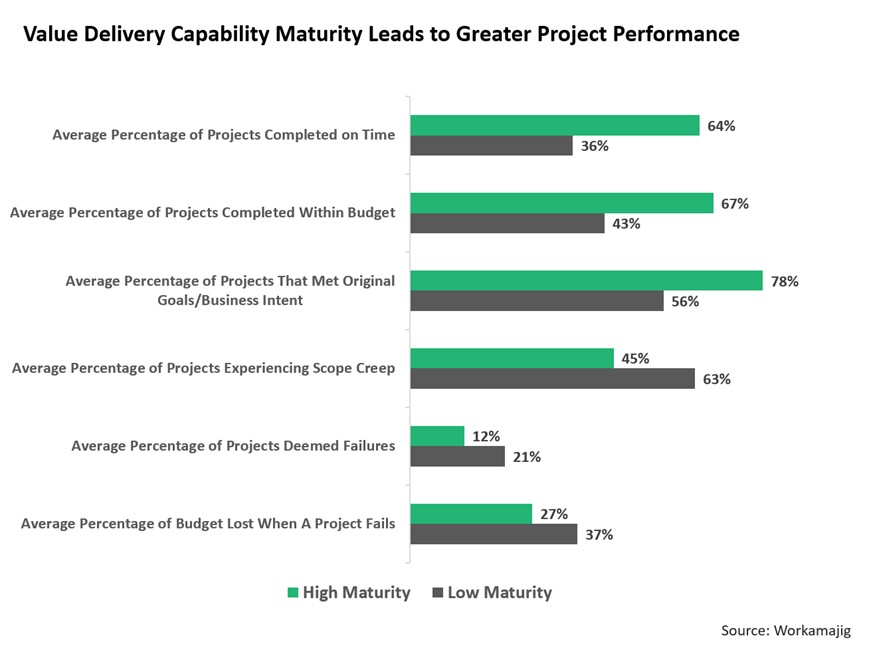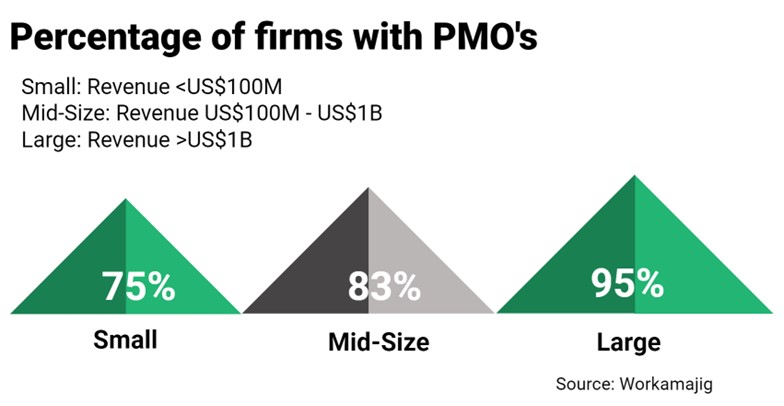
Have you ever found yourself staring at yet another project that’s veering dangerously off course, wondering, “How did we get here again?” If you’re a seasoned project leader, this scenario probably sounds all too familiar. But imagine if you could foresee the reasons for project failure and predict which of your projects are likely to fail months in advance. It’s intriguing, isn’t it?
In the intricate world of project management, success is the ultimate goal. However, the threat of failure often remains a close adversary. The line between success and failure can often seem perilously thin. One of the key reasons for failure is not recognizing the early warning signs.
So, how often do projects actually fail? When can we unequivocally label a project as a failure? More importantly, why do so many projects end up crashing and burning, leaving behind a trail of wasted resources and unfulfilled expectations? To sum it up, ‘What are the reasons for project failure’?
In a world where the stakes are high and there’s barely any room for mistakes, understanding the real reasons behind project failures is crucial. This article aims to be your flashlight, guiding you through the dark labyrinth of project mishaps. In this article, we will discuss the reasons for project failure, share strategies to dodge these obstacles, and introduce a revolutionary solution to set your project on a path toward success.
How Often, Do Projects Fail?
Project failures are more common than we'd like to admit. A glance at industry statistics reveals a disconcerting truth. According to multiple sources, including TeamStage, a significant portion of projects – some estimates place it as high as 70% – fall short of meeting their intended goals.
That's right; a staggering percentage of projects do not deliver what they set out to achieve. Instead, they often spiral into a vortex of delays, budget overruns, and unmet expectations. But what defines a project as a failure, and what leads us down this perilous path? Let’s find out.
When Is a Project Considered a Failure?
The definition of project failure is more nuanced than it may seem at first glance. While a project that is discontinued unexpectedly is undeniably a failure, the threshold for failure can vary. It’s not just about projects that are scrapped or abandoned; it’s also about those that miss their deadlines, exceed their budgets, or fail to meet their original objectives.
A project may be deemed a failure if:
- It doesn’t achieve its intended goals - If the project’s primary objectives are not met, it’s a failure.
- It exceeds its budget - Going over budget can be a clear sign of mismanagement and failure to accurately estimate costs.
- It misses its deadlines - Failing to meet project milestones and deadlines can have cascading effects, leading to project failure.
- It doesn’t meet quality standards - Even if a project is completed on time and within budget if the quality of the deliverables doesn’t meet expectations, it can be considered a failure.
Now that we’ve established what constitutes project failure, let’s delve into the crux of the matter – why do projects fail? What are the reasons for project failure? And what can we do to avoid this all-too-common outcome? Understanding these reasons for project failure is crucial for any project’s success. Let’s explore these reasons for project failure in detail.
Why Do Most Projects Have Such a High Failure Rate?
The high failure rate of projects is a persistent and perplexing issue that has confounded organizations for years. It’s a conundrum that’s both costly and frustrating, and it leaves many scratching their heads in disbelief.
One of the primary reasons behind project failures is the lack of accurate insights and predictive capabilities. Traditional project management approaches often rely on historical data and past experiences, which can be woefully inadequate when it comes to predicting and mitigating potential issues. These are some of the reasons for failure that we need to address.
In conclusion, understanding the reasons for failure in projects is crucial for improving success rates. By leveraging advanced analytical solutions, we can gain accurate insights, predict potential issues, and take proactive measures to ensure project success.
Below is an illustration of how value delivery capability maturity leads to greater project performance based on various research reports examined by Workamajig.

Common Reasons for Project Failure
Understanding the common reasons for project failure is crucial for effective project management. Here are some of the most common reasons:
- Inadequate Planning - One of the reasons for project failure is inadequate planning. Rushing into a project without meticulous planning can set the stage for disaster. Without a clear roadmap, it’s easy to veer off course.
- Unclear Objectives - Another reason for project failure is unclear objectives. When project objectives are ambiguous or ill-defined, it’s challenging to gauge success, leading to confusion and misalignment.
- Poor Communication - Poor communication is also a reason for project failure. Ineffective communication can sow the seeds of chaos. When team members aren’t on the same page, misunderstandings and conflicts can derail progress.
- Scope Creep - Scope creep is a common reason for project failure. As project requirements expand beyond their original scope, it can lead to increased costs, delays, and, ultimately, failure.
- Lack of Stakeholder Engagement - Lack of stakeholder engagement is another reason for project failure. Failing to engage and involve key stakeholders can result in misinformed decisions and a lack of support when challenges arise.
- Inadequate Resources - Inadequate resources, whether it’s budget, manpower, or technology, can hamstring a project and make success elusive. This is another common reason for project failure.
- Risk Ignorance - Risk ignorance is a significant reason for project failure. Neglecting to identify, assess, and mitigate risks can leave a project vulnerable to unexpected obstacles.
- Absence of Monitoring and Control - The absence of monitoring and control is another reason for project failure. Without a robust system for monitoring progress and implementing course corrections, projects can quickly go off track.
- Failure to Adapt - In today’s dynamic business environment, projects need to be flexible and adaptable. The rigidity can spell doom and is a common reason for project failure.
- Lack of Accountability - Lack of accountability is another reason for project failure. When team members aren’t held accountable for their roles and responsibilities, it can lead to missed deadlines and subpar outcomes.
Reasons For Project Failure – How to Avoid Them
The good news is that project failure is not an inevitable fate. With the right strategies and solutions at your disposal, you can significantly enhance your chances of success. Here are some proven approaches, along with implicit suggestions on how to leverage features, capabilities, and benefits to mitigate the reasons for project failure:
- Comprehensive Planning - Embark on your project journey with a meticulous roadmap. Chart out your goals, timelines, resources, and potential hazards. A thorough plan is your safeguard against common threats like scope creep, resource inadequacy, and overlooking risks. Arm yourself with project management software that serves as your command center for planning and progress tracking.
- Objective Clarity - Aim for unmistakable targets. Define project goals that are specific, measurable, and in sync with your organization’s ambitions. Avoid the pitfalls of vague or unattainable objectives that can lead to confusion and stakeholder dissatisfaction. Utilize goal-tracking solutions that ensure your objectives remain in clear view.
- Transparent Communication - Nurture a habitat of openness and ongoing conversation among your team and stakeholders. Keep everyone informed and engaged with regular updates and opportunities for feedback. Adopt collaboration solutions that smooth out the communication process and facilitate document exchange.
- Scope Vigilance - Maintain a firm grip on your project’s scope. Be firm in rejecting changes that stray from the initial plan. Scope creep is a notorious culprit in project failure, leading to inflated costs, delayed timelines, and compromised quality. Deploy scope management solutions that give you oversight and control over project changes.
- Stakeholder Involvement - Secure stakeholder commitment from the start. Their support is crucial for informed decision-making and sustained project momentum. Implement stakeholder management systems that encourage active participation and gather valuable feedback.
- Resource Optimization - Allocate the necessary resources, both budgetary and human, to fuel your project’s success. Scarcity of resources can obstruct progress and diminish quality, paving the way for failure. Employ resource allocation solutions that help you efficiently manage your budget and workforce.
- Proactive Risk Management - Prepare for potential risks with a comprehensive risk management plan. Neglecting to anticipate risks leaves your project exposed to unexpected challenges. Use risk management solutions that aid in identifying, assessing, and mitigating potential threats.
- Diligent Monitoring and Control - Keep a vigilant eye on your project’s trajectory with real-time monitoring solutions. Lack of oversight can lead to projects drifting off course, wasting valuable time and resources. Utilize control mechanisms that provide instant insights and alerts for timely interventions.
- Flexibility and Adaptation - Embrace change and be ready to pivot to keep your project aligned with its goals. An inability to adapt can render a project obsolete in today’s ever-changing business environment. Opt for project management solutions that support flexibility and quick responses to shifting requirements.
- Defined Accountability - Establish clear roles and hold team members accountable for their contributions. Ambiguity in responsibilities can result in missed deadlines and subpar performance. Implement role-based access systems that clarify duties and promote accountability.
And to ensure all the above activities are streamlined and progressing in the right direction, you need a project manager. Below is an illustration of the percentage of firms with PMOs based on various research reports examined by Workamajig.

To further enhance your chances of success, you can leverage advanced analytics solutions that offer predictive capabilities. These solutions can help you foresee potential risks, identify critical roadblocks, and make data-driven decisions in real-time. They can also provide you with feedback from your project stakeholders, giving you a comprehensive outlook on your projects. By using these solutions, you can effectively address the common reasons for project failure and steer your projects toward success.
Popular Use-Cases
To illustrate the practical application of these strategies, let’s explore a few popular use-cases where they can make a significant difference in mitigating the reasons for project failure:
- Software Development - In the fast-paced world of software development, effective project management is paramount. Clear objectives, scope management, and agile methodologies can ensure successful project delivery and avoid common reasons for project failure.
- Construction Projects - Large-scale construction projects require meticulous planning, resource allocation, and risk management to avoid costly delays and overruns, which are often reasons for project failure.
- Product Launches - Launching a new product demands precise coordination and stakeholder engagement to meet launch dates and capitalize on market opportunities. Missteps in these areas are often reasons for project failure.
- Marketing Campaigns - Marketing campaigns benefit from clear objectives, effective communication, and adaptability to changing market dynamics. A lack of these can be the reason for project failure.
- Manufacturing Processes - In manufacturing, efficient resource allocation, and real-time monitoring are critical to ensuring products are delivered on time and within budget. Failure in these areas can lead to reasons for project failure.
Conclusion
As we draw our discussion to a close, our exploration into the reasons for project failures has illuminated the critical need to identify and understand their root causes. We’ve identified key factors and provided strategic solutions to mitigate these risks. Additionally, the article shares a few popular use cases of advanced analytics in contemporary business practices to enhance project value delivery. The significant role of advanced analytics solutions in providing predictive insights has been established as a crucial benefit.
In the quest for unparalleled project value delivery and success, predictive intelligence solutions take the lead, offering a prescient method to predict and mitigate potential obstacles.
At the forefront of this progressive innovation stands TrueProject. Surpassing the plethora of conventional task management software prevalent in the industry, TrueProject distinguishes itself as a model of innovation, utilizing the power of AI and predictive data analytics. It represents the quintessential solution for preventing project failure, furnishing sharp predictive insights and the adaptability for real-time decision-making, ensuring that projects not only maintain their trajectory but also achieve their objectives with supreme efficiency and precision.
More information about TrueProject on trueprojectinsight.com
 About the Author:
About the Author:
Nisha Antony is an accomplished Senior Marketing Communications Specialist at TrueProject, a leader in predictive intelligence. With over 16 years of experience, she has worked as a Senior Analyst at Xchanging, a UK consulting firm, and as an Internal Communications Manager on a major cloud project at TE Connectivity. Leveraging her versatility, Nisha develops and executes strategic marketing collaterals for modern business technology domains. She is an insightful storyteller who creates engaging content on AI, machine learning, analytics, governance, project management, cloud platforms, workforce optimization, and leadership. Nisha is a passionate professional, inspired by emerging tech innovations that transform businesses.
Endnotes
- Angele Ledig. “What are the main causes of project failure?” Wimi: March 11, 2021. https://www.wimi-teamwork.com/blog/main-causes-project-failure/
- Jennifer Bridges. “Why Projects Fail? Top 10 Reasons for Project Failure.” August 22, 2023. https://www.projectmanager.com/blog/top-10-reasons-for-project-failure
- Vartika Kashyap. “Top 10 Reasons Why Projects Fail (And How to Solve Them)” September 11, 2023. https://www.proofhub.com/articles/reasons-why-projects-fail
- Kissflow Team. “Reasons for Project Failure.” (n.d.) https://kissflow.com/project/why-projects-fail/
- Tim Barenscheer. “What causes project failure? 12 common issues in project management and their solutions.” https://www.teamly.com/blog/reasons-for-project-failure/
- Hannah Cohen. “Project Management Statistics: 45 Stats You Can't Ignore.” September 19, 2022. https://www.workamajig.com/blog/project-management-statistics
- TeamStage Team. “Project Management Statistics: Trends and Common Mistakes in 2023.” TeamStage: 2023. https://teamstage.io/project-management-statistics/#:~:text=Top%20Project%20Management%20Statistics%3A%20Editor%E2%80%99s%20Choice%201%2070%25,62%25%20of%20successfully%20completed%20projects%20had%20supportive%20sponsors




